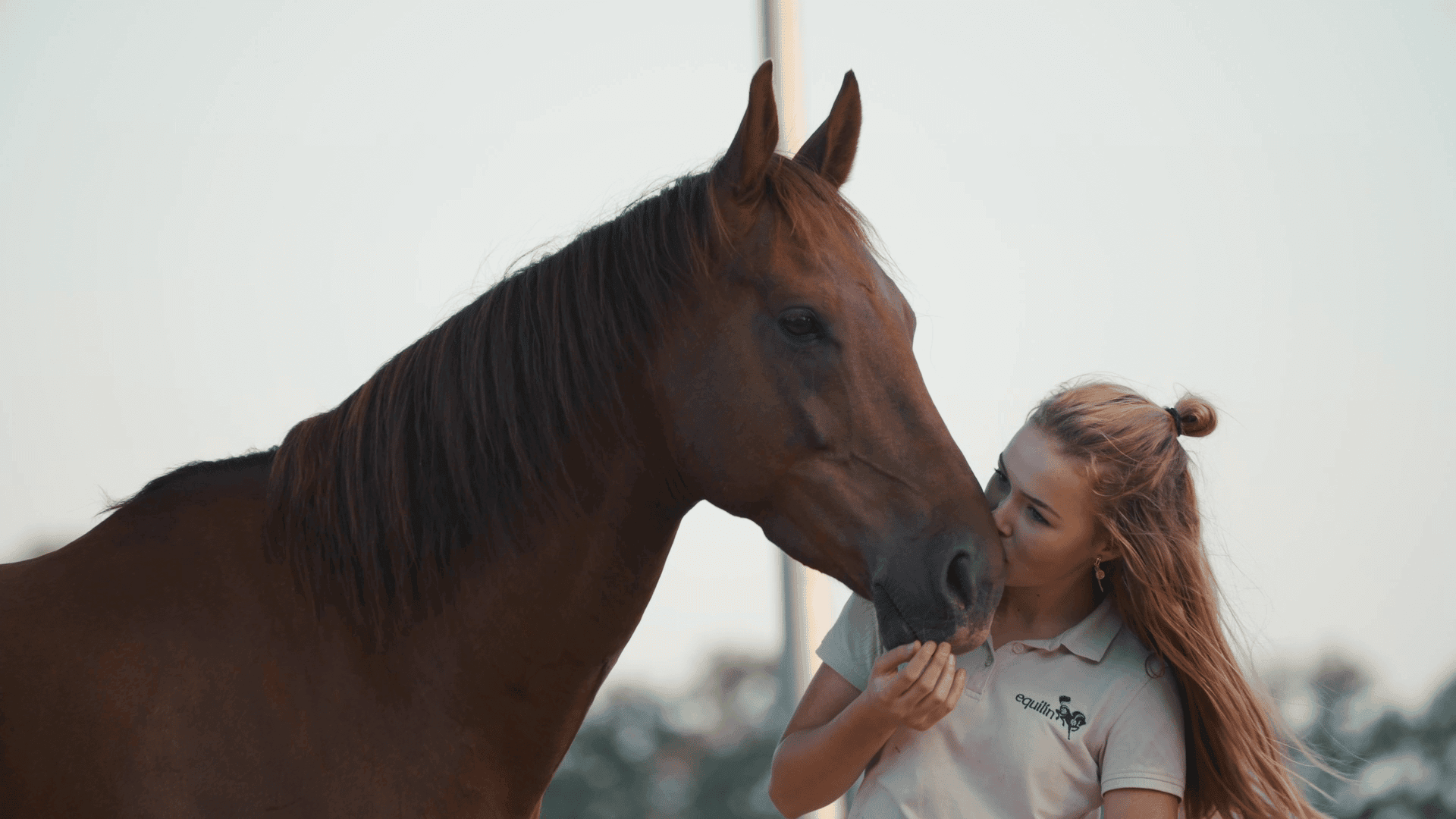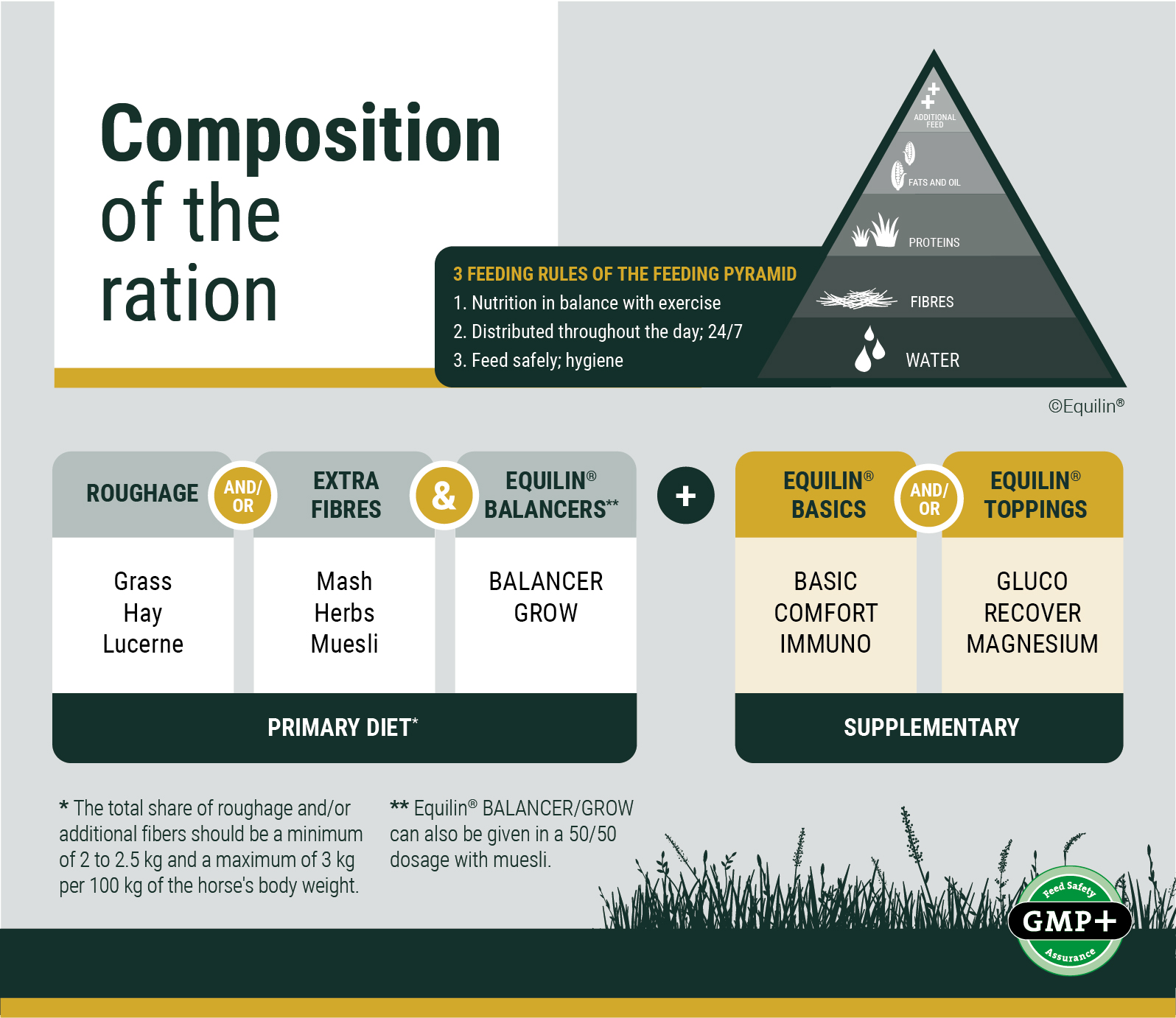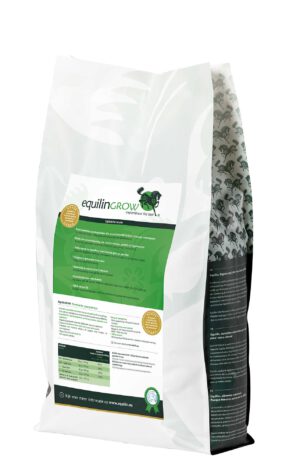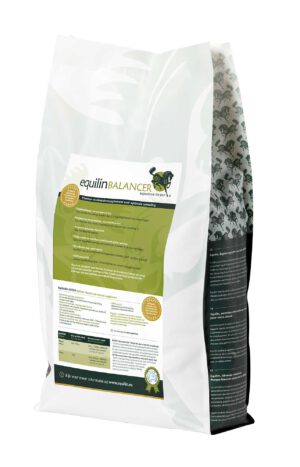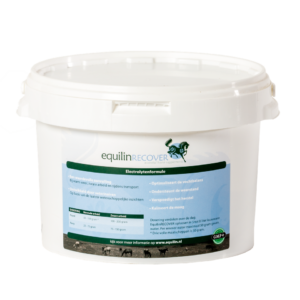Nutritional Guide for Horses
The chart below provides a natural nutritional guide that forms the basis for keeping your horse fit and healthy. Download the complete step-by-step plan as a convenient PDF or follow the online nutritional guide for your horse here.
This nutritional guide is divided into 6 steps: roughage, BALANCERS, BASICS, salt, supplements, and concentrated feed.
Do you want more advice? Then request a free nutritional consultation at the bottom of this page.
1 – Roughage
A horse or pony needs fibres to feel satisfied and stay healthy, at a minimum of 1,5% of their body weight in dry matter. In nature, a horse will eat even more roughage. Did you know that nutritional fibres and prebiotics are the same?
Biodiverse, well-dried roughage containing a variety of different grasses and herbs is best if you want to do your horse’s intestinal flora a real favour. Instead of roughage, other (low-energy) high-fibre products such as alfalfa, carrots, roughage mixes, bran, soaked beetroot mash, green mashes or ‘light’ muesli can also be given.
Roughage-analyse
Roughage should preferably be analysed, at the very least a Quickscan should be done to get a complete picture of the levels of sugars, protein, fibres and water your horse ingests with their roughage.
Common roughage mistakes
- 24hr grazing for overweight horses
- Young, low-texture grass for a horse with sensitive intestines
- Coarse, stemmy hay for a senior horse
- Soft, fine hay or (unfertilised) high-sugar grass for sober breeds
- Mouldy hay or very wet haylage for any horse or pony (haylage with dry matter below <70 %)
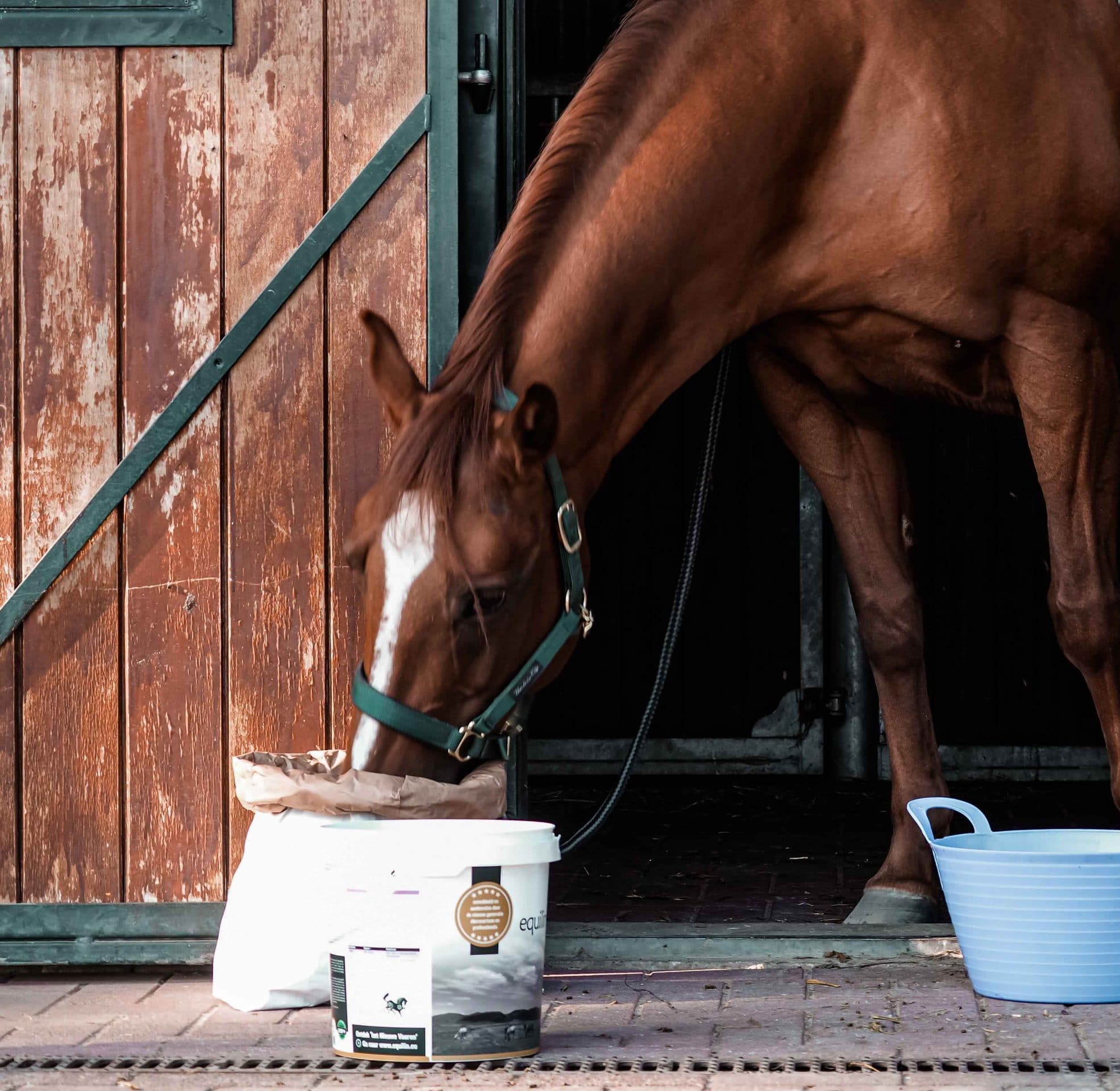
2 – BALANCERS
The necessary roughage supplement
Every horse or pony needs well-digestible minerals and/or vitamins in addition to their roughage because generally these are not found in roughage in sufficient levels. Especially zinc, copper, selenium and vitamin E are points of attention. BALANCER’s contain these important substances.
Equilin offers two types of BALANCERS: EquilinBALANCER and EquilinGROW. EquilinBALANCER is for horses and ponies from 3.5 years old. EquilinGROW is for animals under 3.5 years and for pregnant and lactating mares. EquilinGROW also contains easily absorbable protein and omega 3 (DHA/EPA).
Please note! BALANCERS maintain a healthy gut flora. They do not correct it; that is the role of the BASICS.
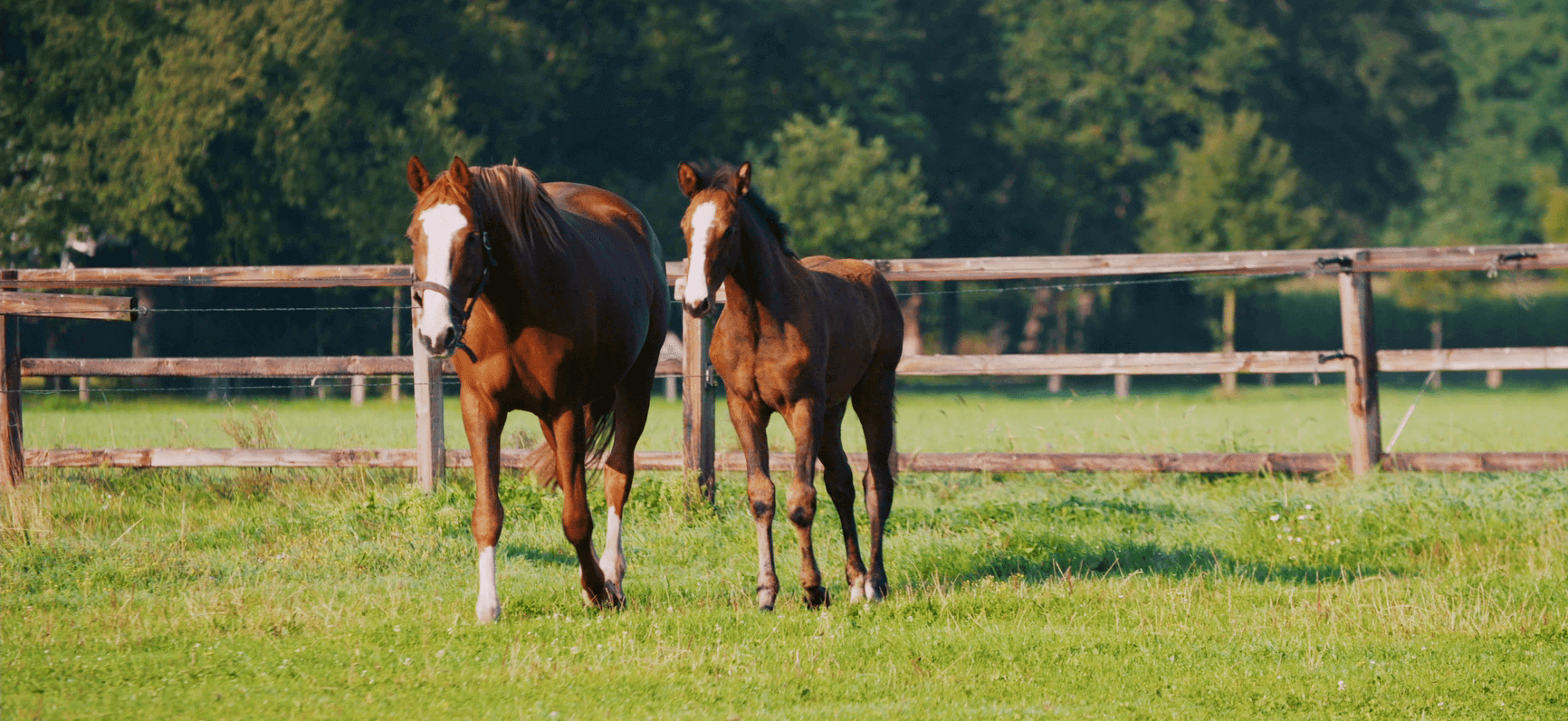
3 – BASICS
Correction of the Intestinal Flora
BASICS, the foundation of ‘The New Feeding,’ rebalance the intestinal flora. This allows the roughage to be digested better by the horse, ensuring optimal absorption of the beneficial fatty acids from the nutritional fibres. This is the most healthy form of energy which can later be converted to fats and sugars. This is the original energy system of every horse and often makes additional energy supplementation with concentrated feed unnecessary!
Equilin’s BASICS provide support for proper intestinal function and a healthy intestinal flora. They improve overall health, promote relaxation, and contribute to a willing horse. In addition, BASICS contain high-quality nutrients (known as nutraceuticals) that are not found in sufficient levels or not at all in normal equine feeds.
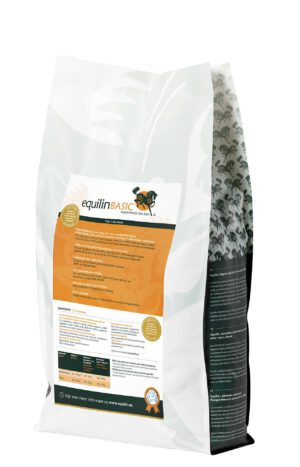
EquilinBASIC
- Rebalances the intestinal flora
- Improves mood
- Stimulates muscle use
- Improves overall condition
- Supports coat, hooves, and immune system
- From 2.5 years and up
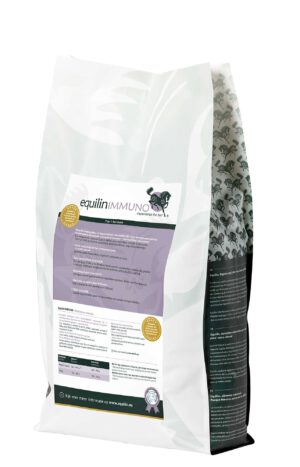
EquilinIMMUNO
- Contains BASIC
- Supports the immune system
- Cleanses the liver
- To start 'The New Feeding Concept'
- Detox treatment in spring and autumn
- From 2.5 years and up
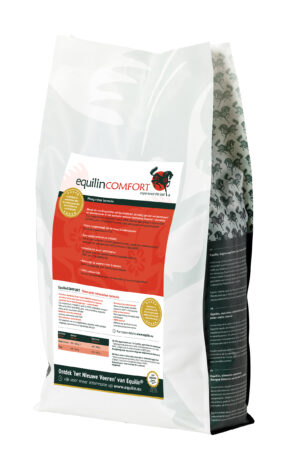
EquilinCOMFORT
- Contains BASIC
- Supports proper gastric function
- Optimizes digestion
- Provides more relaxation
- From 2.5 years and up
Starten met BASICS
- The BASICS are always started with a 3-week build-up dosage to rebalance the intestinal flora and optimise the digestibility of the roughage in the caecum and large intestine.
- In this period, concentrates can be reduced. When the intestinal flora are rebalanced, you can evaluate whether extra energy (courage) is desirable for your horse through feeding concentrates. Extra high-quality protein can also be beneficial.
- Extra or less protein and energy can also be added by (partially) mixing in another batch of roughage. This is why roughage analysis is always desirable, so you know what you are feeding!
- The first effects of BASICS are usually visible in the coat, which becomes more intense in colour and sheen. In the following weeks, further effects will also show in among others behaviour, fitness and relaxation.
Please Note!
The nutrients in BASICS do not feature in classical diet analyses. Nutritionists will therefore not calculate the BASICS as essential.
- Do not feed EquilinCOMFORT during competitions due to the herbs.
- Do not feed EquilinIMMUNO to pregnant, lactating, acutely laminitic, or seriously ill animals.
- Preferably, do not feed EquilinIMMUNO during the competition season due to detox reactions.
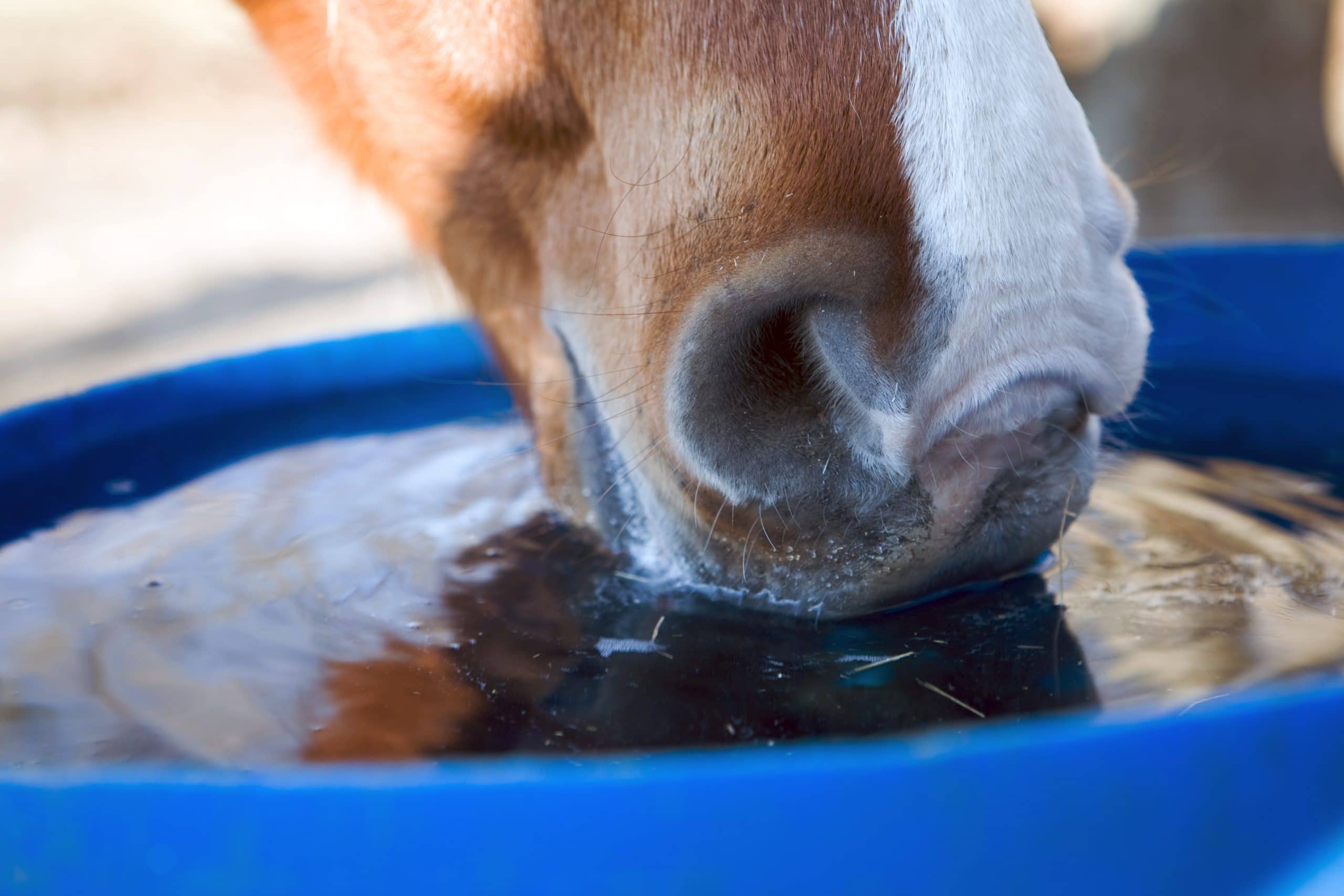
4 – SALT
For Improved Hydration
An important point of attention! A lot of roughage is low in sodium and relatively high in potassium. Replenishing the horse’s salt requirements is necessary because this is not added to any BALANCER (of almost any brand). Sufficient salt ensures that fluids can be absorbed well in the intestines, making the manure less soft and watery. It also increases recovery after physical effort.
| Sodium requirement NRC | Maintenance | Light work | Heavy work | Lactation (month 1-3) | Absorption with 7.5 kg average hay dry matter (1.5% dry matter/body weight) |
| Horse 500 kg | 10 g Sodium 25 g Salt | 14 g Sodium 35 g Salt | 25,5 g Sodium 64 g Salt | 13 g Sodium 32,5 g Salt | 0,9 x 7,5 = 6,75 g = 16,9 g Salt 2% roughage 9 g Sodium / 22,5 g Salt |
| Pony 200 kg | 4 g Sodium 10g Salt | 5,6 g Sodium 14 g Salt | 10,2 g natrium 25,5 g Salt | 5,1 g Sodium 12,75 g Salt | 0,9 x 3 = 2,7 g = 6,7 g zout 2% roughage 3,6 g Sodium / 9 g Salt |
Supplementing with salt
You can replenish up to 10 grams a day (horse) with kitchen salt, this contains +/- 40% sodium. You can just add this to the feed.If you want to supplement even more salt, choose low-iodine salt or (partial) diet salt if this is indicated by roughage analysis.
In heavy work, hot weather, transport or other conditions where the horse sweats profusely or loses a lot of fluids, add extra RECOVER → Electrolytes (salts) dissolved in water or mash for effective and rapid uptake.
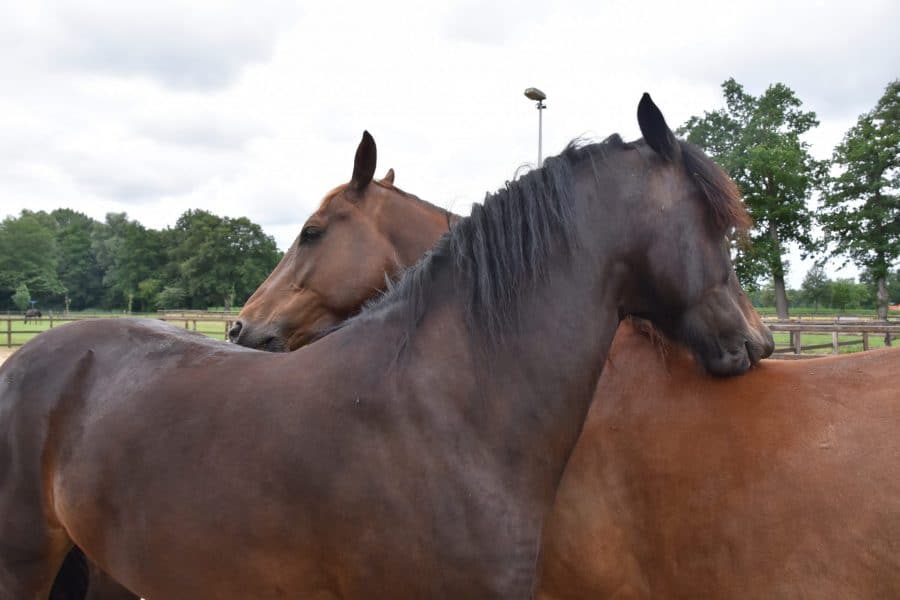
5 – SUPPLEMENTS
Extra Support for Older Animals
5 – Supplements
Specific problems might benefit from additional supplements AFTER a proper diagnosis. There are wonderful products on the market that can help support certain (organ) systems in a natural way. Equilin offers extra support for supple joints or older animals with EquilinGLUCO. EquilinGLUCO+ helps to lubricate connective tissues, supports flexible joints, and assists in reducing stiffness in (older) horses.
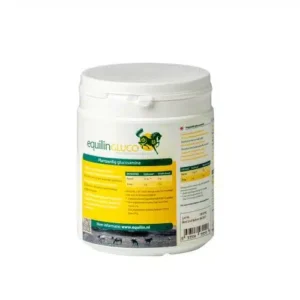
EquilinGLUCO
- Joint support
- For smoother movement
- For sport horses
- For older horses
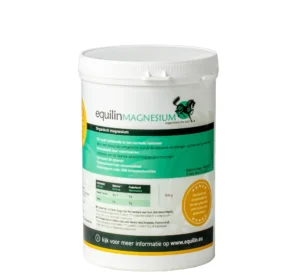
EquilinMAGNESIUM
- 100% pure magnesium citrate
- Relaxes the muscles
- Optimizes the nervous system
- Supports 300 bodily functions
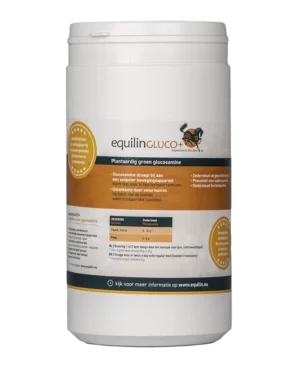
EquilinGLUCO+
- For older horses
- Supports connective tissue
- Supports the joints
- Reduces stiffness
Many supplements are already included in the BASICS.
Many supplements will be obsolete as they will mostly contain the nutrients that are already in BASIC’s. In addition to BASIC’s it is not necessary anymore to supplement the following substances:
- Linseed oil or other Omega 3 oils
- Extra magnesium, MSM, silicon
- Vitamine E (in most cases)
- Vitamin C
- Muscle support supplements
- Digestive support supplements
- Supplements for liver or stomach with IMMUNO or COMFORT
- B-vitamins and biotin, made by healthy intestinal bacteria
Give supplements in consultation with an expert.
Always first consult an expert who has seen your horse or pony for the correct usage of herbal preparations and tinctures. If you have any questions about this, you can also always feel free to send us an e-mail.
It doesn’t hurt to try’ is hardly ever the case!
Always remember to keep in mind that when products really are effective, they will also put extra strain on the liver to a greater or lesser degree and may have other side effects as well.
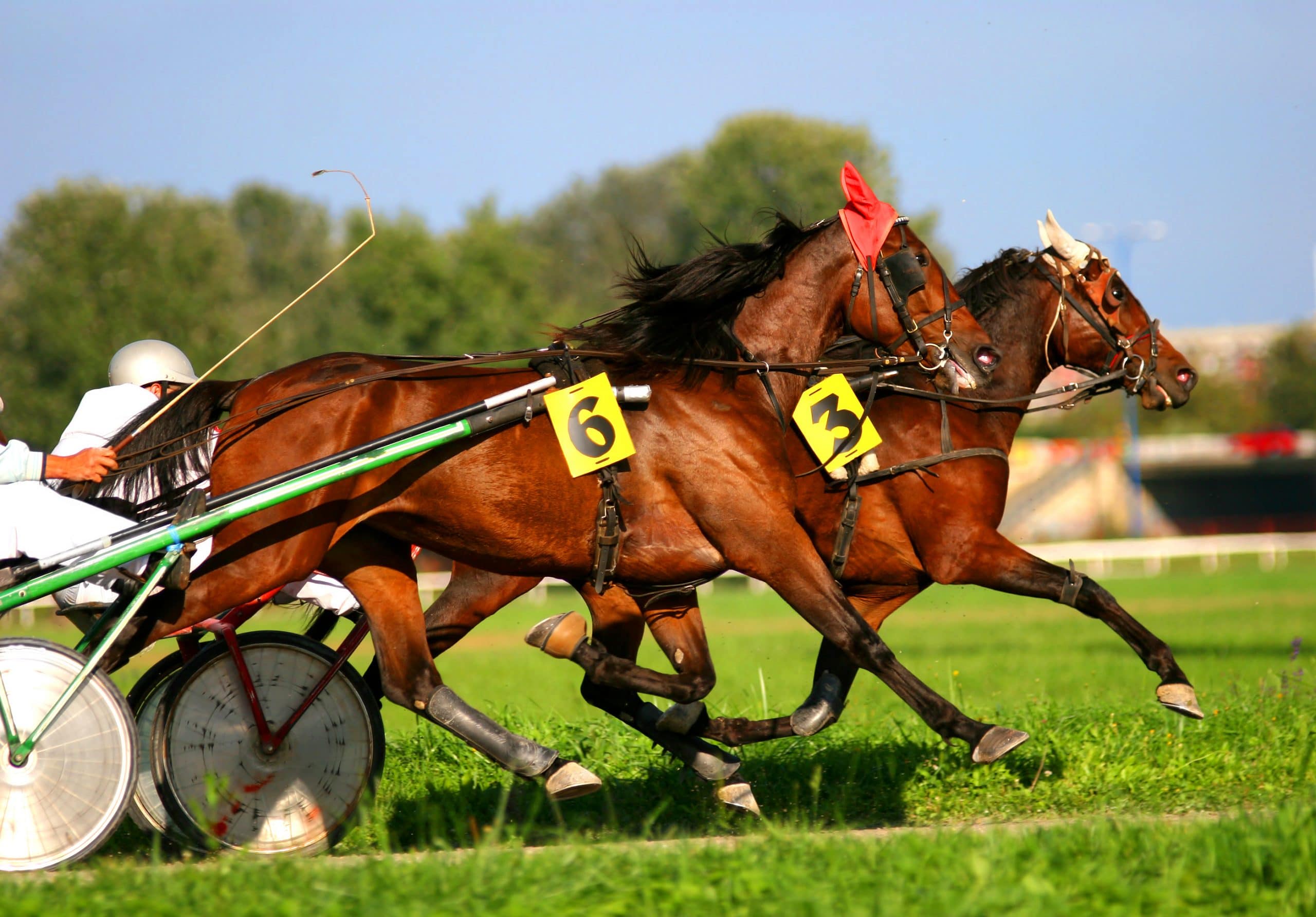
6 – Extra energy or proteins
Is additional concentrated feed necessary?
Concentrated feed not always necessary.
Most horses and ponies will gain enough energy and protein from the average roughage for one hour of daily work at light to medium level, if the roughage is digested well and the intestinal flora are balanced.
When you start on the ‘New Feeding Concept’, it is wise to reduce any concentrates as much as possible in the first few weeks, and only decide after week 5 IF and HOW MUCH concentrates are necessary.
Quantity and quality of roughage.
Always have a Quickscan done on the roughage you are feeding, so you can be sure it is suitable and not too poor. You can always supplement by mixing in a richer batch of roughage. Other possible options are (sport) muesli, senior feeds or a green, protein-rich mash (with a lot of variety in fibre).
Concentrated feed and ‘The New Feeding.’
In practice, we generally see that no more than 1-1,5kg of concentrates a day are required when you follow the principles of the ‘New Feeding Concept’.
If you are not seeing enough results after 6 weeks of feeding BASIC’s, there is often another underlying cause at play. Always contact us or your veterinarian.
If you are interested in understanding all the factors involved in a horse’s proper digestion of its food, then the book or online course “THE NEW FEEDING” is highly recommended.
